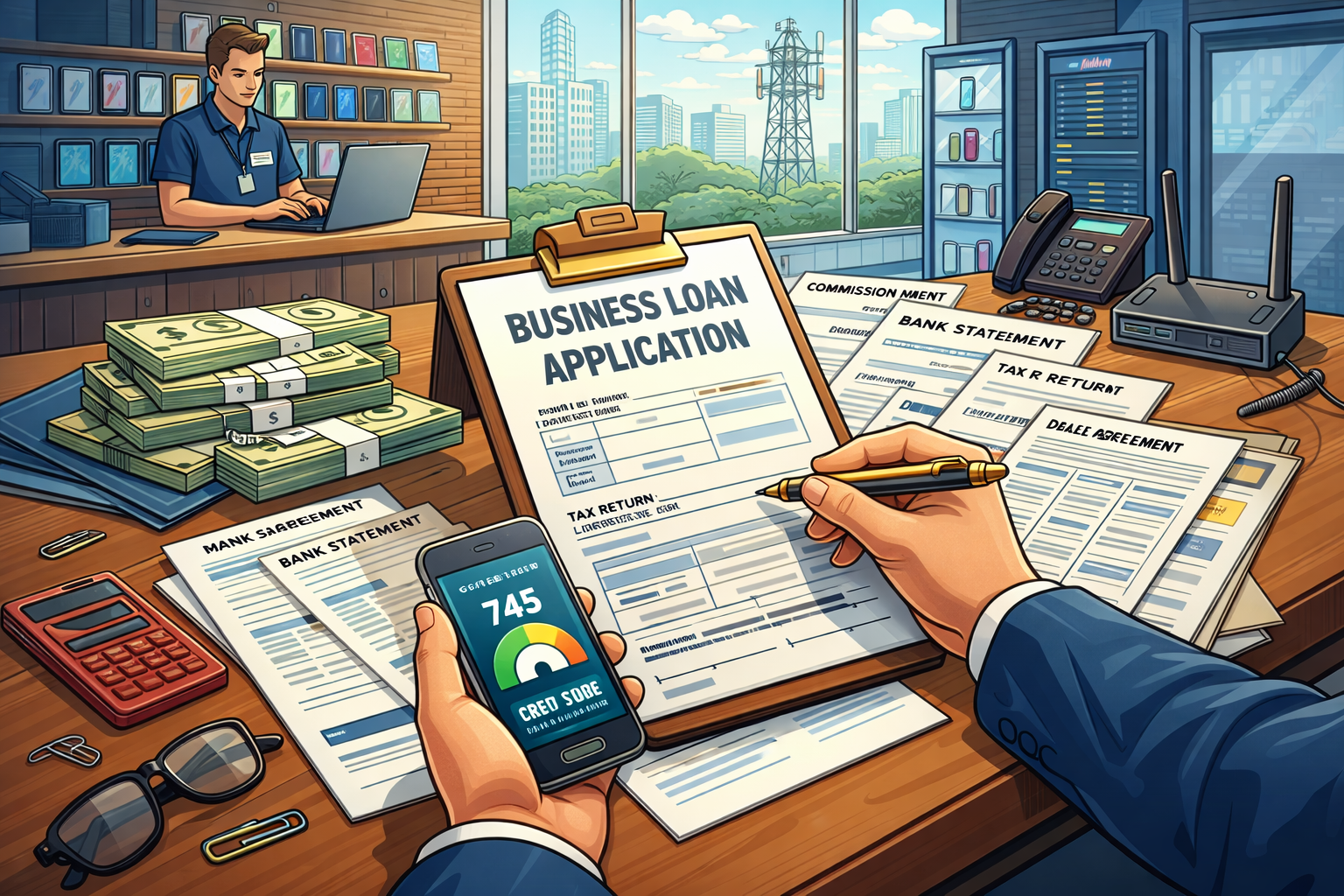BUSINESS LOAN
How to Secure a Loan to Start Your Business
Starting a business is exciting, but financing it can feel like a major hurdle. Getting...
Learn More


![]() November 4, 2025
November 4, 2025
Getting a loan online has become the new normal — whether it’s a business loan, personal loan, or even a student loan. You can apply from your phone, compare offers, and get approved without ever stepping into a bank.
But let’s be honest: with all that convenience also comes risk. Scammers are getting smarter, and some fake “lenders” are out there waiting for their next victim.
So how do you know if an online lender is truly safe and legitimate? Don’t worry — in this guide, we’ll go over some simple, real-world tips that’ll help you spot the difference between a trustworthy lender and one you should stay far away from.
Before you type in a single piece of personal information, look at the website itself. Is it secure?
A trustworthy site will have SSL (Secure Socket Layer) encryption — that little padlock icon next to the URL, and the “https://” at the beginning instead of “http://”. The extra “s” literally stands for “secure.”

SSL encryption protects the information you send through the website, like your name, address, and banking details. It keeps hackers from snooping on what you’re typing.
If you want to understand how this works, you can read more about it on SSL.com’s FAQ page.
Bottom line: if the padlock is missing, close that tab and move on. No exceptions.
Think of it like looking up a new online store before making your first purchase. You want to know that they’re real, right?
Before applying, take a minute to research the lender’s company name and website domain. See if they have a physical office listed or a working phone number. A real company doesn’t hide behind a contact form.
Also, check if their email addresses look professional — like info@company.com instead of loanhelp@gmail.com. Scammers love using generic emails.
Take a look at reviews, too. Don’t just rely on the testimonials they post on their own site — those can easily be faked. Instead, search on Google Reviews, Trustpilot, or even the Better Business Bureau (BBB).
The Better Business Bureau (BBB) is one of the best places to verify if a company is trustworthy. They rate businesses from A+ (the best) down to F (the worst) based on transparency, how they handle complaints, and customer feedback.
Go to BBB.org and search for the lender’s name. If they have a strong rating and clear information, that’s a great sign.
If you can’t find them at all, or their score is low — that’s your cue to look elsewhere.
A secure and honest lender doesn’t hide their terms and conditions in confusing language.
Before signing or submitting anything, look for these key details:
If a lender avoids answering questions or pressures you to “sign now before the offer expires,” that’s a red flag. A good lender gives you space and transparency.
In this digital world, every legit business leaves some kind of trail online.
Search for their name on LinkedIn, Facebook, or X (Twitter). Do they post updates? Are they engaging with customers? Do they look like a real, active company?
Also, take note of whether they’re part of any known partner networks.
If the lender seems invisible online — no social media, no news, no activity — that’s not a good sign.
Here’s the rule of thumb: if it sounds too good to be true, it probably is.
Some fake lenders promise things like:
Be careful — real lenders never promise guaranteed approval, and there’s always a process involved.
And if someone asks you to send money upfront to “release” or “process” your loan — stop right there. Legitimate lenders will never ask for payment before giving you the loan.
Every real lender in the U.S. must be registered or licensed to operate. You can usually check this through your state’s financial regulatory website.
A licensed lender is required to follow rules that protect borrowers from unfair or predatory practices. If they can’t provide proof of licensing — walk away.
Good customer service says a lot about a company’s values.
Try reaching out to them before you apply. Send a message, give them a quick call, or ask a question about their loan terms.
If they don’t take the time to explain things before you apply, imagine how they’ll treat you once you’re already a customer.
Legitimate lenders value communication. Scammers just want your information.
It helps to see what other people are saying about their experiences.
Browse online forums, Facebook groups, or review sites where borrowers share their stories. Are there consistent complaints? Do they sound genuine or copy-pasted?
Also, educate yourself on how loans really work. These helpful reads from the JNA blog can help you better understand the loan world:
When you understand how lending really works, you’ll have a much easier time spotting the red flags.
Sometimes, your instincts are the best warning system you’ve got.
If something doesn’t feel right — maybe the website design looks off, or the lender sounds pushy — listen to that feeling.
There are hundreds of legitimate lenders online. You don’t owe anyone your trust, especially if they’re rushing you.
Take your time, compare your options, and only move forward when you feel confident.
Getting a loan online can be a smart, simple, and time-saving decision — but only if you choose the right lender.
By checking for SSL encryption, researching the company, verifying their BBB rating, and reviewing the loan terms closely, you can avoid scams and protect your hard-earned money.
If you’re looking for trusted opportunities to grow your business, check out the JNA Dealer Program. It’s a reliable platform that connects entrepreneurs and partners with verified financing and business options — a perfect example of how to build secure partnerships online.
You can also explore other business loan topics and dealer opportunities to help expand your business the right way.
At the end of the day, a secure online lender is one that’s transparent, registered, and responsive. They won’t rush you, they’ll communicate clearly, and most importantly — they’ll earn your trust.
Because when it comes to your finances, safety isn’t optional — it’s everything.

Holiday Marketing Ideas That Drive Real Sales Growth
Feb 12, 2026

Business Loan Documents Guide for Telecom Dealers
Feb 10, 2026

Telecom Cybersecurity: Essential Strategies to Protect Networks
Feb 6, 2026

Responsible Credit Card Use: Smart Financial Habits
Feb 4, 2026

How to Attract More Customers to Your Cell Phone Store
Feb 2, 2026